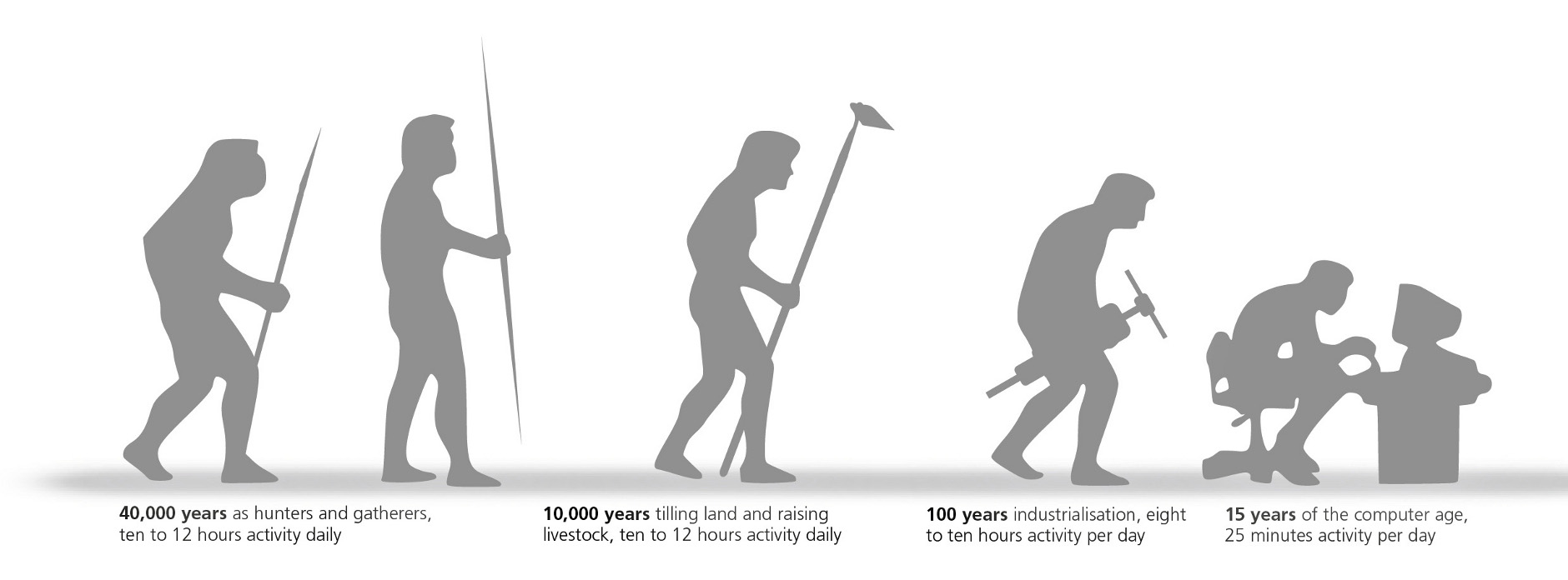The biological background
Surveys indicate that 80 per cent of office workers apologise for not sitting correctly – so are people the problem or the rule? Human behaviour can’t be changed in the long term by standards and regulations if it clashes with their biological makeup. And all appeals, warnings or incentives are futile if the natural inclination isn’t there. Therefore, it’s vital to accept our biological disposition as the basis for a new understanding of ergonomics.

The process of sitting in particular shows just how strongly biology governs our behaviour. Despite all warnings and findings to the contrary, adults sit down whenever and wherever they have the opportunity, whether they‘re tall or short, fat or thin, young or old. It’s only children that actually have a natural inner urge to be on the go, so that physical skills develop properly in the growth phase. After that period the biological principle of energy efficiency dominates. People only become physically active when it’s a question of self-defence. In the past, calories used to be in short supply and had to be burned up carefully. Consequently, the natural impulse to save physical energy played a key role in shaping civilisations’ progress. Everything that facilitates life, by reducing the physical activity required, gains a firm foothold with the majority of the population. Examples include remote controls and using escalators or lifts. And that’s exactly where the problem lies…
A walker by nature…
…because to date, the approx. 50,000-year-old history of human beings has been shaped by demanding physical activity which included hunting and gathering, fleeing from danger, fighting, dancing, tilling the soil and selling ourselves for work… And we do all that on two legs. Evolutionary researchers believe that our upright posture is responsible for man‘s special developmental history. Our distinct sense of balance, the enormous flexibility of our backs and above all the dexterity of our hands have opened up the path for us to develop tools. Therefore, nature has created the perfect conditions for human beings to get about on two legs and based all their biological processes on this fact. Even 100 years ago, men were physically active for eight to ten hours a day on average. It wasn’t until mass motorisation and (to an even greater extent) the emergence of computers over the last 20 years that this figure has now plummeted to 25 minutes a day. However, living and surviving with so little physical activity is not part of the blueprint and the natural regulatory system of human beings.